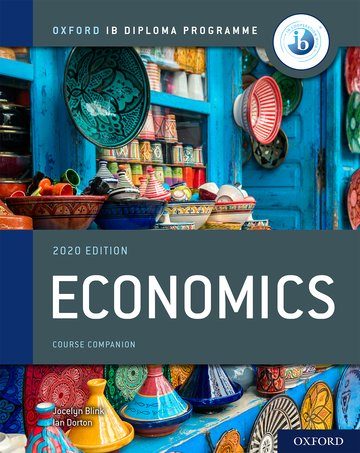
The International Baccalaureate Curriculum that we are familiar with is yet changing again to be applied in the year 2020 and to be first tested in 2022. The changes to the curriculum are not as significant as the changes that took place in 2019.
It is surprising how after a year of changes, new changes are yet to come. The curriculum changes for 2020 focus on changes in the course of Economics, which is a course provided at our school. This article will feature a brief summary of the changes and a peek into how the students feel.
Firstly, the course structure faces a minor change. The new course aims to help students in making more meaningful connections between economic theories and real-world situations. To achieve their purpose, they included an introductory unit that provides the origins of some economic ideas in a historical context, allowing students to understand that these theories are based on the development of models from real time situations which may differ.
Additionally, the conceptual approaches were enhanced. Each unit will begin with statements of conceptual understandings that allow students to make connections between topics and the real world. The new course also highlights the importance of inquiry by requiring students to research applications of economic theories in the real world, ensuring all students to be constantly and actively engaged in their own learning.
Moreover, the content of the new course will include elements of behavioral economics given their relevance in contemporary economics. There will a greater focus on key global issues related to the environment, inequality and poverty. After the introductory unit, there will only be three main sections in the course, being Microeconomics, Macroeconomics, and The Global Economy. Each of these sections will have two overarching real-world issues.
Lastly, the assessments will be slightly altered. In the SL paper 1, the questions may be taken from all areas of the SL syllabus, unlike how it was restricted to only microeconomics and macroeconomics before. In the SL paper 2, the questions may be taken from all areas of the SL syllabus, unlike how it was restricted to only international and development economics. Although only one out of the two questions has to be answered, there will be more parts to questions. The HL papers 1 and 2 will face the same changes as the SL papers, with the inclusion of HL extension topics as possible questions. The paper 3 for HL will be altered to a policy paper, where candidates will be required to answer two questions. Students will be required to recommend policies and solutions to the issues raised in questions.
For the Internal Assessments, the maximum word count will be changed to 800 words from 750 for all three commentaries. In each of the three commentaries, students are required to use different ones of the nine key concepts to analyze their chosen extracts.
Two rising juniors that are entering IB this year and being the first ones to experience the new changes revealed their thoughts on these changes in the curriculum. Jami R. stated that “although [she hasn’t] completely familiarized [herself] with the IB Economics course, it seems like the course is crossing over with some aspects of politics (such as history, the global economy, and real-world issues) which is a substantial part of truly understanding the essence of economics.” At the same time, she believes that “these minor changes will help students grasp a wider range of knowledge and help prepare them for college-level courses in the social sciences.”
When asked about her thought on the constant changes that IB is making to its curriculum, Sabrina C. shared her thoughts: “I think they shouldn’t make sudden changes too often (like the math course with applications/analysis) but if they do, it should be within a timeframe to allow teachers and students to adjust to those changes.”
Personally, as a graduating IB candidate, I believe that it is quite disadvantageous for students to experience constant changes in their courses. The benefits of a consistent curriculum are obvious: new candidates get to gain advice from past candidates to have a better chance of succeeding, teachers are able to offer their experiences with grading and provide deeper insights into the structure, concepts and content of the courses.
However, the enhancement of the curriculums can also ensure a better learning experience as students will be able to apply their knowledge taught directly to the real world.
What are your thoughts on the constantly shifting IB curriculums? Comment down below!